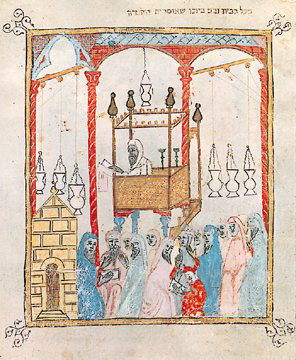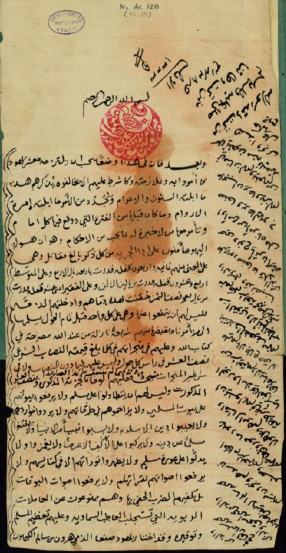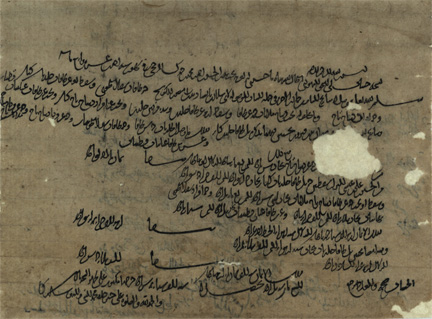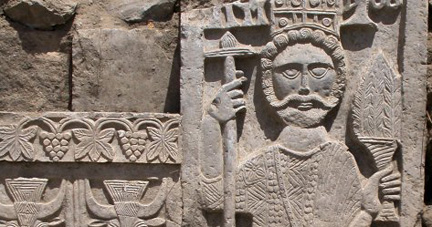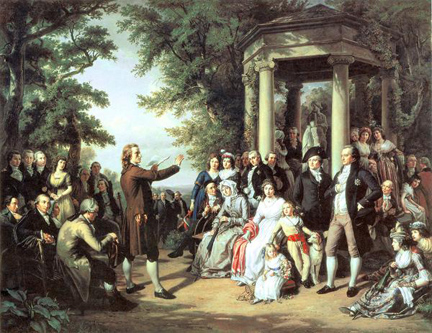
Theobald von Oer, The Weimar Court of the Muses (1860)
by Anouar Majid. Tingis Redux, August 7, 2013
For many years now, I have shared my utter amazement at how human beings living in the 20th and 21st centuries could still believe that the gods of the Bible and the Koran are as real as the computer or mobile device in their hand, the cars they drive, or the many people, animals, or trees they see and touch. When I ask people if God exists, many say yes. But when I ask them how they got to know Him (God in the Judeo-Christian-Islamic tradition is unmistakably male), they quote their holy books as evidence. I have yet to meet someone who had a direct encounter with God; our knowledge of the Almighty relies heavily on our faith that Moses, Jesus, and Mohammed had exclusive access to Him, and that the books that tell us about these privileged encounters are the uncorrupted truth.
Most of us have been indoctrinated into such beliefs since childhood, so that by the time we start defending God against unbelievers, the best we can do is rationalize the faiths we inherited from our parents, families, and social environments. Take away the holy books and the theologians that have spent millennia preaching their dogmas and we are left with only our mere existences, alone with the elements, without any guide to show us how to make sense of our lives. This is, in fact, how the world was in ancient Greece before Christianity took over and condemned philosophy to perdition. And this is the world that the British philosopher A. C. Grayling wants us to rediscover in his newly published book, The God Argument: The Case Against Religion and for Humanism (2013).
Grayling doesn’t talk about the role of writing and scripture in the making of religions; he is more interested in making a humanist case against the basic assumptions of the three monotheistic religions. (Buddhism, Jainism and Confucianism, for example, are better understood as philosophies, not religions in the sense Westerners understand the term.) Such religions, a “hangover from the infancy of modern humanity,†a collection of “superstitions of illiterate herdsmen living several thousands of years ago,†expressions of the “pre-scientific, rudimentary metaphysics of our ancestors,†and a relic of the distant unlettered past are “essentially a stone-age outlook in the modern world.†It would be as if today’s governments still depended on the power of astrology and magic to govern people and run their affairs. This survival, needless to say, is astonishing in an age when science has made great strides—but, then again, science has yet to make a significant impact on many parts of the world, including the Islamic one. Continue reading Humans without Gods →

